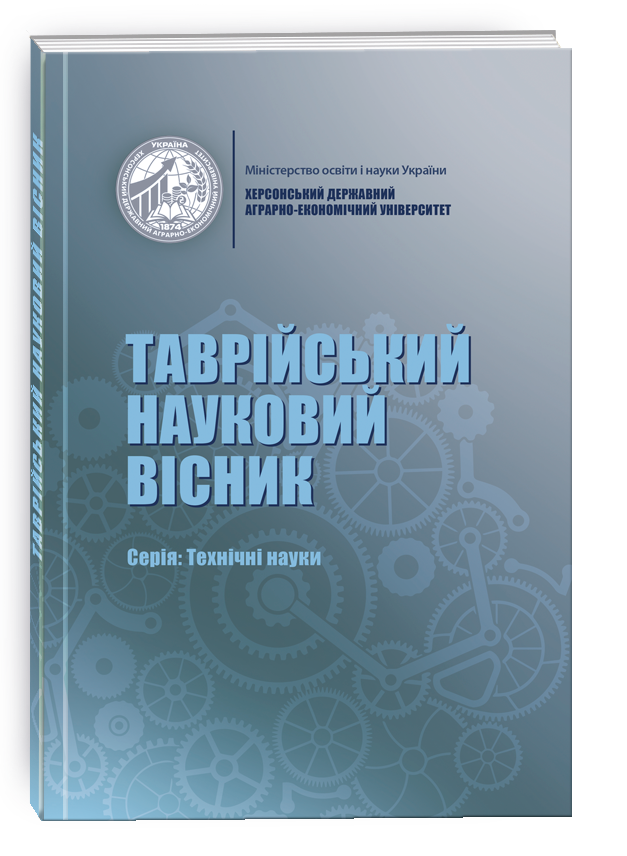STRATEGIES FOR ENSURING DATA SECURITY IN ARTIFICIAL INTELLIGENCE SYSTEMS
DOI:
https://doi.org/10.32782/tnv-tech.2024.2.8Keywords:
artificial intelligence, intelligent information technologies, information security, cybersecurityAbstract
This article explores comprehensive approaches to information protection in the context of rapid advancements in artificial intelligence (AI) technologies. It analyzes potential threats that appear when people use AI across different areas from cybersecurity to ethical dilemmas. The relevance of data security in AI constantly increases according to the popularity of smart technologies using in the development of different types of information systems. The main focus is not only on the technical aspects of security, but also on the social and legal dimensions, including regulation and control over the activities of AI systems. The article also touches upon the importance of international cooperation and knowledge exchange to establish a global security framework in the field of AI. The purpose of this research is developing of strategies for ensuring data security in the context of AI and their influence on the general safety of information systems. As a part of research, there are considered analysis methods of existing data protection models, synthesis of new solutions and evaluation of their efficiency in the test conditions. Also, there are proposed a number of strategies that include the development of the reliable algorithms, the establishment of data security standards and the implementation of monitoring systems to prevent malicious use of AI. The main results allow us to conclude that the creation of unified data security standards will help not only the level of protection of confidential information in AI systems, but also will contribute to increasing public trust in the use of these systems. This can have a significant impact on the development of new technologies, economic evolution and the protection of human rights and freedoms in the digital world. The research results have practical significance as they offer recommendations for the developed strategies implementation in the real AI systems, which, in turn, can serve as a basis for further legislative regulation in this area.
References
Черненко Н. І. Штучний інтелект в управлінні персоналом. Таврійський науковий вісник. Серія: Економіка. 2022. № 12. С. 76–83. URL: https://doi.org/10.32851/2708-0366/2022.12.11 (дата звернення 08.04.2024).
Черевко К. О. Штучний інтелект як інструмент протидії злочинності. Вісник Кримінологічної асоціації України. 2023. Т. 28. № 1. С. 124–133. URL: https://doi.org/10.32631/vca.2023.1.10 (дата звернення 08.04.2024).
Цеслів О. Штучний інтелект в економіці. Наука і техніка сьогодні. 2022. № 6(6). С. 70–78. URL: https://doi.org/10.52058/2786-6025-2022-6(6)-70-78 (дата звернення 08.04.2024).
Лебеденко С. О. Штучний інтелект в маркетингу. Ефективна економіка. 2023. № 4. URL: https://doi.org/10.32702/2307-2105.2023.4.38 (дата звернення 08.04.2024).
Гунько І. Тестування програмного забезпечення у 2023 році: нові тенденції та проблеми. Herald of Kiev Institute of Business and Technology. 2023. Вип. 49. № 1–2. С. 25–36. URL: https://doi.org/10.37203/kibit.2023.49.03 (дата звернення 08.04.2024).
Богом’я В., Гудзь А. Штучний інтелект: сучасний стан і перспективи застосування. Сучасні інформаційні технології у сфері безпеки та оборони. 2023. Т. 46. № 1. С. 13–17. URL: https://doi.org/10.33099/2311-7249/2023-46-1-13-17 (дата звернення 10.04.2024).
Пчелянський Д. П., Воінова С. А. Штучний інтелект: перспективи та тенденції розвитку. Automation of technological and business processes. 2019. Т. 11. № 3. С. 59–64. URL: https://doi.org/10.15673/atbp.v11i3.1500 (дата звернення 08.04.2024).
Добровольська О. В., Штанько В. І. Філософський аналіз еволюції штучного інтелекту. Studies in history and philosophy of science and technology. 2019. Т. 28. № 1. С. 10–19. URL: https://doi.org/10.15421/271902 (дата звернення 12.04.2024).
Діхтієвський П. В. Адміністративно-правове забезпечення захисту персональних даних громадян в умовах воєнного стану. Проблеми сучасних трансформацій. Серія: право, публічне управління та адміністрування. 2023. № 10. URL: https://doi.org/10.54929/2786-5746-2023-10-01-15 (дата звернення 08.04.2024).
Мірошник М. A. Розробка засобів захисту інформації в розподілених комп’ютерних системах та мережах. Інформаційно-керуючі системи на залізничному транспорті. 2015. № 1. С. 18–25. URL: https://doi.org/10.18664/ikszt.v0i1.51555 (дата звернення 08.04.2024).
Дудикевич В. Б., Томашевський Б. П., Сергієнко Р. В. Протоколи і механізми безпеки інформації в комп’ютерних системах і мережах. Ukrainian information security research journal. 2009. Т. 11. № 2(43). URL: https://doi.org/10.18372/2410-7840.11.4043 (дата звернення 15.04.2024).
Онищук І. І. Правове регулювання технологій штучного інтелекту: теоретико-прикладні та етичні засади. Scientific Papers of the Legislation Institute of the Verkhovna Rada of Ukraine. 2020. № 3. С. 50–57. URL: https://doi.org/10.32886/instzak.2020.03.06 (дата звернення 08.04.2024).
Тюря Ю. І. Правове регулювання використання штучного інтелекту на основі європейського підходу. Знання європейського права. 2022. № 2. С. 141–145. URL: https://doi.org/10.32837/chern.v0i2.362 (дата звернення 08.04.2024).
Посикалюк О. Правове регулювання відносин щодо використання штучного інтелекту: перспективи з точки зору порівняльного права. Право України. 2021. № 10. С. 202–210. URL: https://doi.org/10.33498/louu-2021-10-202 (дата звернення 15.04.2024).
Токарєва К., Савліва Н. Особливості правового регулювання штучного інтелекту в Україні. Scientific works of National Aviation University. Series: Law Journal «Air and Space Law». 2021. № 60 (3), С. 148–153. URL: https://doi.org/10.18372/2307-9061.60.15967 (дата звернення 08.04.2024).
Даниленко Ю. Від Ш до І: що таке штучний інтелект та як він трансформує світ. SPEKA. 2022. URL: https:/speka.media/ai/vid-s-do-i-shho-take-stucnii-intelektta-yak-vin-transformuje-svit-xv7039 (дата звернення 08.04.2024).
Тартачний О. Чому Google зосереджується на штучному інтелекті? Офіційне пояснення компанії. SPEKA. 2023. URL: https://speka.media/comu-googlezoseredzujetsya-na-stucnomu-intelekti-oficiine-poyasnennya-kompaniyi-9x5mwp.(дата звернення 08.04.2024).
50 найперспективніших компаній, які будують бізнес на основі штучного інтелекту. Список Forbes. Forbes. 2023. URL: https://forbes.ua/innovations/spisok-nayperspektivnishikh-privatnikh-kompaniy-yaki-buduyut-biznes-na-osnovishtuchnogo-intelektu-20042023-13200 (дата звернення 08.04.2024).
Голубенко О. І., Лемешко А. В., Поліщук А. Р., Кузьменко М. В., Дегтярьов Є. О. Дослідження застосування штучного інтелекту у кібербезпеці. ITSynergy. 2023. № 2. С. 71–78. URL: https://doi.org/10.53920/its-2023-2-5 (дата звернення 08.04.2024).
Савченко В.А., Шаповаленко О.Д. Основні напрями застосування технологій штучного інтелекту у кібербезпеці. Сучасний захист інформації. 2020. № 4. С. 6–11. URL: https://doi.org/10.31673/2409-7292.2020.040611 (дата звернення 08.04.2024).







